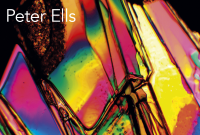

Search:
Contents:
- CHAPTER 1 HOW TO SUBMIT AN INQUIRY
- CHAPTER 2 WRITING YOUR PROPOSAL
- CHAPTER 3 THE CONTRACT OFFER
- CHAPTER 4 AUTHOR SERVICES
- CHAPTER 5 THE EDITORIAL AND PRODUCTION PROCESS
- CHAPTER 6 MARKETING YOUR BOOK
- CHAPTER 7 FAQs
- CHAPTER 8 ROYALTIES
The Bullet in the Pawpaw – Theatre and AIDS in South Africa by Kim Hope.
THE BULLET IN THE PAWPAW - Theatre and AIDS in South Africa is the story of Kim Hope’s passion for South Africa, and her determination to try to reduce the spread of HIV/AIDS through a unique interactive theatre process. In Johannesburg she created the Themba HIV&AIDS Project - a Non-Government Organisation for HIV prevention. Themba educated audiences about safe sex through a unique process of performance and ‘up-front’ information, and challenged audience members to engage only in safe(r) sexual behaviour.
In 1964, Kim was enjoying the delights of ‘Swinging London’ when, after a chance encounter, she was invited to join a theatre company to tour South Africa as an actress.Travelling through the Transkei, she fell irrevocably in love with the ‘beloved country’, but after a year she went back to Britain, because she refused to live under the abhorrent system of apartheid.
This experience changed the direction of her life. On arrival in England, Kim applied for a place in a teachers’ training college and achieved one of her ambitions: a longed-for education. She joined the Anti-Apartheid Movement and also discovered feminism. She became a drama teacher, a Quaker, campaigner, and non-violence trainer. In 1995, after the first democratic election in South Africa, she returned to Johannesburg with Theresa, a colleague and friend. They ran interactive theatre workshops across the country to help reduce conflict in communities.
In 1998 Kim was appointed Head of Theatre Arts at Waterford Kamhlaba United World College in Swaziland. Three years later, Rev Thabo Makgoba - who at the time was the Priest-in-Charge at Christ the King, Trevor Huddleston’s old church - asked her to set up a permanent programme for HIV prevention at the Trevor Huddleston Memorial Centre in the (previously notorious) suburb of Sophiatown, Johannesburg.Kim moved to South Africa and became what is called a ‘social entrepreneur’. Together with Theresa, she created the Themba HIV&AIDS Organisation and recruited and trained young people from the townships to deliver a unique programme of interactive theatre workshops.
The book traces Kim’s personal growth together with the development of the young people as they became educated, learned new skills and grew in self-confidence. Some of them gained degrees through the Drama for Life programme at Wits University, despite having no previous educational qualifications.
Kim encountered numerous challenges: one was the disastrous appointment of an assistant director for Themba, which almost brought the project to its knees. Life in Johannesburg was dangerous and perplexing, and the threat of violence an ever-present reality.
Woven into the story is the troubled history of South Africa itself. There are passages of reflection on inequality, God, democracy, HIV&AIDS and the importance of education.
The book ends gratifyingly with an account of a lively and exciting Themba performance in the township of Soweto.
An Appendix describes the drama processes that Kim and Theresa used in the training – both at Themba and also for conflict resolution.
What people are saying about The Bullet in the Pawpaw:
| I found it a truly fascinating story, not just an account, but full of insights, colour, sensitivity, passion. It kept me quite enthralled throughout. Congratulations to Kim Hope, author. What you set out to discover and what you achieved in South Africa—as so beautifully recounted in the book—has filled me with admiration and awe for you. Your vision, courage (wow!!!), and grit—what you accomplished in those years with this work in South Africa has brought a whole new dimensions to light. Thank you for sharing this remarkable story. Thank you for the gift of this book. And I mean “gift” in many senses of the term. David Atwood, Quaker, and independent expert on disarmament and peace. This frank and compassionate account of the apartheid years and the AIDS epidemic in Southern Africa brings back many memories for me. It is a most valuable record of a project that without question has been of immense value to so many people. Kim Hope writes directly and frankly and in so doing demonstrates how individuals with dedication and purpose utilised their own skills to help create a better quality of life for all regardless of creed or colour. This is not only a compelling story it is also a valuable historical record. Terry Waite, Anglican and a Quaker, and author of Out of the Silence a book of poems and reflections and Solitude an exploration of solitary places and solitary people. The Bullet in The Pawpaw is a story of hope and triumph at a time in South Africa when denial and ignorance around HIV and Aids was killing people and threatening to rip the nation apart. The Themba HIV and Aids Project, built on the Alternatives to Violence Project (AVP) and Forum theatre, is a story of courage, resilience, empowerment and love. It is the story of individual and collective action at a time of crisis. Kim Hope took up the challenge and transformed her love for theatre into something that gave young South Africans hope and the power to overcome ignorance and fear. Nozizwe Madlala-Routledge – Quaker and Deputy Health Minister of South Africa (2004 – 2007). Congratulations to Kim on her vivid and moving account of how she went about the onerous task of setting up and running the innovative Themba (“Hope”) project. At a time when people were beginning to be open to testing for HIV but were overwhelmed by the implications, she and her colleagues helped many to comprehend the enormity of the Aids pandemic. I hope this book will affirm the work she and Themba did, recognise those who were given the courage to be tested, and constitute a tribute to those who did not survive the scourge. The Most Revd Thabo Makgoba, Archbishop of Cape Town and author of Faith and Courage: Praying with Mandela | |
| The Bullet in the Pawpaw is a compelling page-turner that traces Kim Hope’s ground-breaking years as a theatre professional in South Africa. But this is no star-struck memoir. It begins in the years of apartheid and follows the author's growing belief in the power of drama to change lives, her struggle against the odds to found the brilliantly innovative Themba project, and her realisation, during the HIV/AIDS epidemic, that her skills as a director could help break the silence surrounding that terrible disease. Beautifully and atmospherically written, her book shines with optimism, courage and an irrepressible sense of adventure. As it drew to a close I found myself so moved that I went straight back to the beginning and read it again. Geoffrey Durham, Quaker and author of The Spirit of the Quakers. |
Categories:
0 comments on this article












